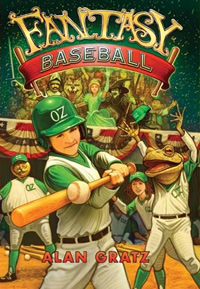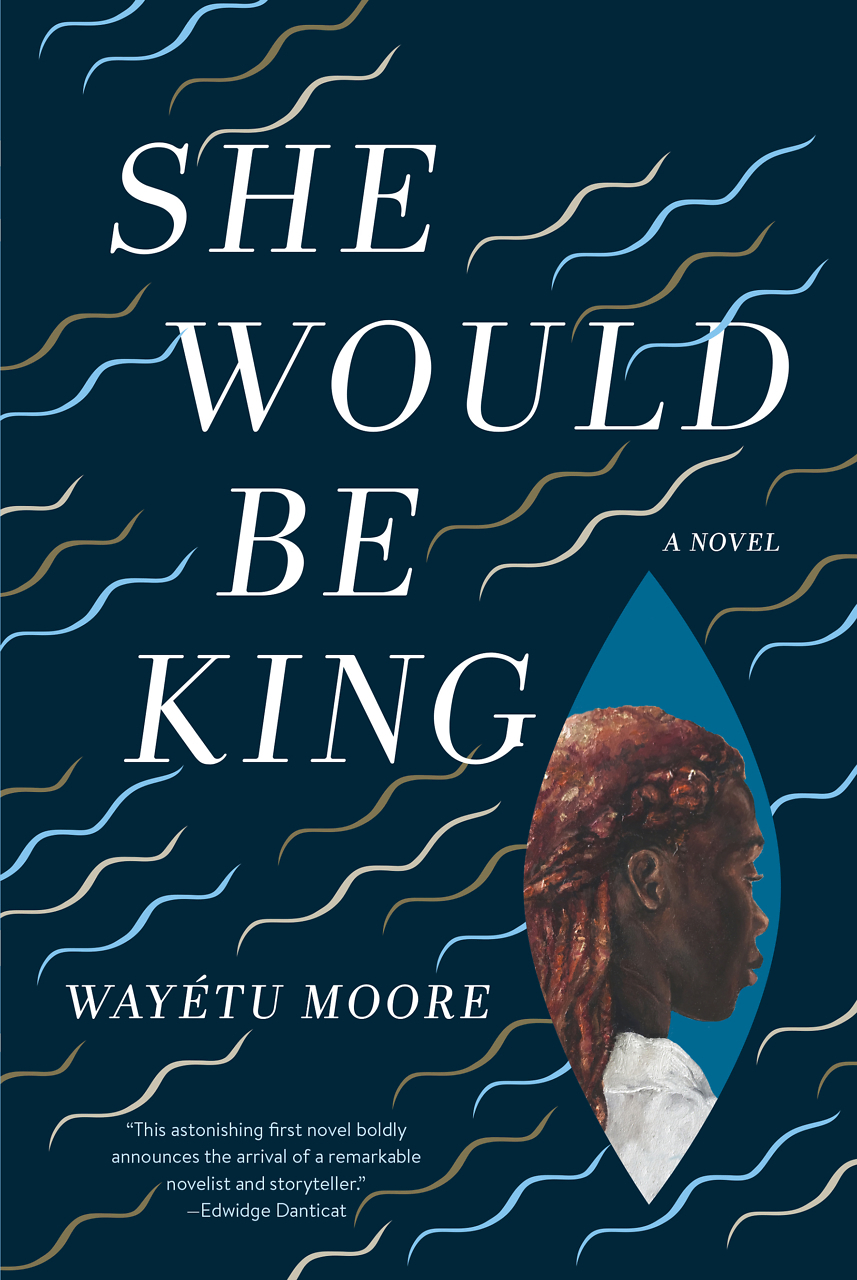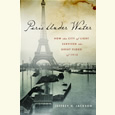Baseball Through the Looking Glass
Alan Gratz talks with Chapter 16 about Fantasy Baseball, his latest novel for children
Alex Metcalf is more than a little disconcerted to wake up and find himself on the bus for the Oz Cyclones baseball team, on his way to a tournament game in the land of Ever After. That’s Oz, as in Wizard of, and his teammates include Dorothy (sporting ruby-red cleats with silver trim), Tik-Tok, Jack Pumpkinhead, a flying monkey named Pinkerton, and Scraps the Patchwork Girl, as well as Toad from The Wind in the Willows, Br’er Rabbit, and the Steadfast Tin Soldier. Something tells Alex he’s not in Atlanta anymore, and that’s when things start to get interesting in Fantasy Baseball, by Knoxville author Alan Gratz.
What follows is a veritable Toad’s Wild Ride, as Alex and his teammates travel from one otherworldly ballpark to the next—including Redwall‘s Abbey Stadium, Wonderland’s Flamingo Grounds, and the Fee-Fi-Fo Forum (the stadium at the top of the beanstalk)—playing teams as diverse as Pinocchio’s Puppets, the Super Happy All-Star Manga Team Squad, the Nine Little Pigs (the original three, plus Wilbur, Babe, Piglet, and friends), and finally the Grimm Reapers, featuring Long John Silver, a Wicked Stepsister, Rumpelstiltskin, and many more unpleasant and seemingly unbeatable players. Alex’s mission is simple: win the Ever After baseball tournament against impossible odds, save his new friends from disappearing forever (the fate of forgotten storybook characters), stay out of the dark and dangerous Wild Woods, and get back to his own “real” world. Oh, and he’s got to do all this while avoiding the Big Bad Wolf, who has sworn to eat Alex if it’s the last thing he does.
Inhabited by a breathtakingly diverse assortment of characters culled from fairy tales, nursery rhymes, mythology, folktales, children’s literature, and even Manga, Fantasy Baseball is a fast-paced adventure, a thrilling come-from-behind sports story, an artistic tour de force, and a heck of a fun read. What is perhaps most impressive about Fantasy Baseball though, is that beneath his literary legerdemain, Gratz effortlessly weaves a sweet, heartfelt tale about life and loss, friendship and loyalty, and giving your all for those you love, even if it means sacrificing your own dreams in the process.
Alan Gratz recently discussed his book with Chapter 16 via email:
Chapter 16: In the past you have written more conventional baseball-themed books for children. How did you come up with the idea of a baseball tournament played in an alternative world populated by famous fictional characters?
 Gratz: The idea for Fantasy Baseball came, weirdly enough, from my daughter and my wife, neither of whom are big baseball fans. My daughter, who was four or five at the time, liked the baseball jerseys I wore and wanted one of her own. She doesn’t care much about baseball or any particular team, though, so my wife, who’s a crafter and sewer, suggested making her a jersey or two with make-believe teams on them. She and I started brainstorming fun team ideas from kids’ books—the Wonderland Hearts, the Oz Cyclones, the Grimm Reapers, the Neverland Lost Boys—and Jo ended up with a red baseball jersey with “Wonderland Hearts” written in script across it. As my wife and I were tossing out the ideas, I said, “How fun would it be to have a book where characters from classic kids’ books are all playing on teams like these in a big tournament?”
Gratz: The idea for Fantasy Baseball came, weirdly enough, from my daughter and my wife, neither of whom are big baseball fans. My daughter, who was four or five at the time, liked the baseball jerseys I wore and wanted one of her own. She doesn’t care much about baseball or any particular team, though, so my wife, who’s a crafter and sewer, suggested making her a jersey or two with make-believe teams on them. She and I started brainstorming fun team ideas from kids’ books—the Wonderland Hearts, the Oz Cyclones, the Grimm Reapers, the Neverland Lost Boys—and Jo ended up with a red baseball jersey with “Wonderland Hearts” written in script across it. As my wife and I were tossing out the ideas, I said, “How fun would it be to have a book where characters from classic kids’ books are all playing on teams like these in a big tournament?”
Chapter 16: According to my rough count, the book includes more than seventy-five different characters from a wide range of sources. And those are just the ones I was able to identify, as some of the clues are rather subtle. It must have been great fun to write for such classic characters. Which ones were your favorites?
Gratz: It was terrific fun to go back and do the research for this book. Many of the books I had of course read as a young boy, or had read to me, but I wanted to go back and reread those, both to see what I missed when I was a boy and also to read them for voice and style as an adult writer trying to pastiche them. There were other books I had never read: Anne of Green Gables, for one. I knew the character of Anne Shirley enough to know that I wanted to include her in the book somehow (she became the first baseman for the Avonlea Chicks, a team of all spunky heroines), but I had never read the book. It was so good! I’m a terrific fan now, but that’s a book I never picked up as a kid.
Also, believe it or not, I had never read The Wind in the Willows. I knew the characters, and had even played Badger in a community theater production of the play, but I had never read the original. What a profound book! Half of it is Toad being silly, of course, but the other half is a really stirring and philosophical look at life and the world. I can’t believe I missed that one as a kid, but it’s hardly surprising. Compared to modern novels for kids, it’s a slow starter, and includes some heady stuff. Definitely a new favorite for me.
Chapter 16: Have you considered providing a glossary to help readers identify all the different characters and the stories from which they originate? (And can I get a copy?)
Gratz: Ha! Well, at one time, I did know how many characters I’d included and where they were, but after half a dozen edits, with characters getting added and subtracted and changing roles, I’ve lost count. You’re not the first person to ask for an annotated version of the book, so I’ll probably end up doing that for curious folks.
Chapter 16: Alongside this multitude of colorful characters, outlandish settings, and continuous action runs a second, quieter storyline having to do with serious illness and what it is like to face the end of life. Why did you choose to introduce this topic in a book of fantasy for children?
Gratz: I think we do a disservice to kids when we shy away from the heavy-hitting topics with them. When I was first outlining the idea, I was pretty insistent that the book have a deeper side to it, something to give it meaning beyond the Bugs Bunny-cartoon kind of set-up it has. As I began to sketch out my main character, I asked myself, “What if the boy who ‘falls’ into this world isn’t a real boy after all but, like the other characters, fictional? Only he doesn’t realize it? What if he’s the daydream of a sick boy in the real world? How will he react when he finds out?”
 What the secondary story—the real heart of the story, I would argue—became for me is the question that all children eventually ask themselves when they come to understand death: “What do I do with this information? What sort of effect will I let the knowledge of my own mortality have on my life?” For most children, that question is briefly considered, then put away for a later time. But for some children—particularly those confronted with their mortality in direct and immediate ways through illness or loss—the question weighs on them, whether they want to ignore it or not. That’s the situation I put my main character in, and I hope that, for those kids who read the book and have the same questions, his decision to live what life he has for others and enjoy the time he has rings true.
What the secondary story—the real heart of the story, I would argue—became for me is the question that all children eventually ask themselves when they come to understand death: “What do I do with this information? What sort of effect will I let the knowledge of my own mortality have on my life?” For most children, that question is briefly considered, then put away for a later time. But for some children—particularly those confronted with their mortality in direct and immediate ways through illness or loss—the question weighs on them, whether they want to ignore it or not. That’s the situation I put my main character in, and I hope that, for those kids who read the book and have the same questions, his decision to live what life he has for others and enjoy the time he has rings true.
Chapter 16: Which books or authors were most important to you as a child?
Gratz: I was far more likely to be found building forts outside, playing with action figures, or dreaming up some new money-making scheme than I was to be found reading books as a boy, but I did read, particularly classics like 20,000 Leagues Under the Sea, Robinson Crusoe, and Treasure Island. Among books written specifically for kids, my favorite had to be The Phantom Tollbooth by Norton Juster. I managed to sneak a couple of references to it into Fantasy Baseball.
Chapter 16: How important is it to you that your books encourage boys, in particular, to read and enjoy fiction?
Gratz: To be honest, I’m not writing for one gender or the other when I write. I’m just writing to tell good stories and entertain. I hope my books are entertaining for both boys and girls. When I wrote Samurai Shortstop, my first published book, I wasn’t thinking about writing a book for boys. I was just writing a book about things I’m interested in: baseball and Japan. Yes, a lot of boys like baseball, but not all of them. A lot of girls like baseball too. Much has been made of the need to write books for boys so we can get them reading again, but the truth of the matter is we don’t need to write books especially for boys or for girls. We need to get past some books being right for one gender and some books being right for another, and just keep putting good books—regardless of the sex of the main character or the subject matter—in the hands of all readers.
Chapter 16: Early in Fantasy Baseball you include a wonderful scene between Sir Lancelot, Sir Galahad, Tom Sawyer, and the Big Bad Wolf. I was sorry not to see more of your interpretation of Tom Sawyer later in the story. Any plans to do more with that character in a future book?
Gratz: I loved looking back at Mark Twain’s work again for the first time in years and trying to write in Tom Sawyer’s voice. I had originally intended to do a team full of Tom Sawyer-esque boys, but it never worked out right for the story. I don’t have any plans to come back to Tom Sawyer, but I should never say never.
Chapter 16: A couple of your characters will be unfamiliar to most readers (including me). I am thinking of Nanny Mae and her cat Mrs. P; The King of Annwn, the Welsh King of the Dead; and Tanuki. Can you talk a little bit about these less well known characters and why you decided to include them? Do they actually exist in children’s literature?
Gratz: All those characters really exist. Nanny Mae and Mrs. P are taken from a little-known World War II-era book I found on my grandmother’s bookshelf. The King of Annwn began life as the Horned King from Lloyd Alexander’s Chronicles of Prydain series, but for copyright reasons I had to use the name of the traditional Welsh mythology character the Horned King was based on. And Tanuki is a Japanese trickster character, popular among children and adults. Sometimes, as in the case of the Horned King, I used lesser known characters because more well-known analogs were unavailable to me due to copyright issues. Sometimes I chose to use them so that Ever After didn’t read like it was only populated by British and American kid lit characters.





